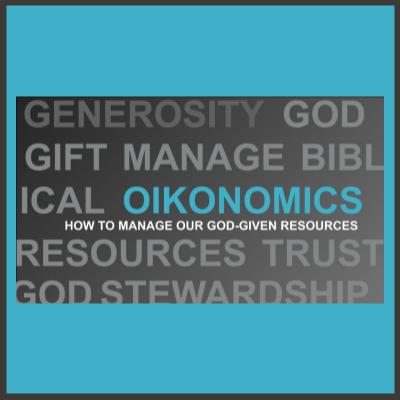2 of 4
SERMON SUMMARY
Does God want us to be healthy and wealthy, or does he disdain wealth and want us to give it all away? Which approach is biblically correct? Because the Bible has so much to say about the topic of money—over 2000 verses—you can find verses, especially if you divorce them from their context, that seem to support both sides of this argument. So, which perspective best represents the Biblical data? In Matthew 6:24 Jesus says we choose whom or what we will serve. After making that choice, we place our full confidence and dependence in it. Two things will tell you who you serve. First of all—look at your calendar. Are the entries “kingdom centered” or are they “me centered”? Materialistic people, by their choices, indicate that the highest value, the greatest good, is the pursuit of the good life—a life of comfort and material acquisition.
Well, back to our question: is it “more spiritual” to be rich or to be poor? Each position has verses to support it. If you advocate either of those positions, the “poverty view” or the “prosperity view,” you can find verses, that on the surface at least, seem to support your position. We usually pick a position based on our background, our experience, or our desires. I have problems with “poverty theology”. It’s adherents conclude that anyone who is doing well financially must be dishonest. Advocates of poverty theology over-spiritualize the role of personal sacrifice—almost making “sacrifice” a god. Often they are legalistic—and they set the standard!
But there are problems with prosperity theology, too. They view prosperity as a sign of God’s approval. Prosperity theology also encourages impure motives. I believe that God’s Word teaches “Stewardship Theology”, acknowledging that all that we have is a gift from God. The important question is not, “How much do I have?,” but rather, “What am I doing right now with what God has entrusted to me?” Those who advocate “stewardship theology” embrace proportionate giving.
In other words, you don’t give it all away, nor do you “plant a financial seed” in order to increase your wealth. You basically just “give generously” knowing that God encourages and blesses generosity. Stewards know that they are owners of nothing. They are just managing God’s resources. And they are committed to managing them wisely—whether they are in charge of a lot, or a little. They don’t believe that you can look at someone’s financial portfolio and draw any definite conclusions about whether or not they are in God’s will. Because for them, the issue is not “How much do you have?”, but “What are you doing with what you have.”
So don’t take too much credit for your prosperity. Whatever gifts and abilities you have came from God. And listen, “The Lord gives and the Lord takes away.” I know some very smart, hard working people who have lost everything. And don’t be ungrateful. Don’t think, “Because I serve God faithfully I deserve to be blessed financially.” What we deserve is hell. But God loved us so much that He sent His Son to keep us from going there. Every good thing we get in life is a gift from God. God doesn’t owe us anything. We should be grateful for everything that we have. Don’t feel guilty. If you’re a multimillionaire, don’t feel guilty. Feel blessed. But recognize that with great wealth comes great responsibility. Jesus said, “To whom much is given, much is expected.” Be generous. Bless others as God has blessed you.
Now God calls some people to give up all of their possessions. Mother Teresa became poor and lived and ministered among the poor. But she was able to do what she did because those whom God called and enabled to make money helped support her various ministry initiatives. If you believe that God wants you to take a vow of poverty, you do that. And if you believe that God has gifted and enabled you to make money so that you can invest it in kingdom purposes, then you do that. What we must not do is judge others in this area and say, “I’m right and you’re wrong.”
Don’t link your security with your prosperity. When you have great wealth, it is easy to begin to find your security and identity there. Your ego becomes attached to your stuff. That is when you are in trouble. “Stewardship position” best represents balanced biblical teaching. Biblical stewardship isn’t focused on how much you’ve got. It asks one very simple question. “What are you doing right now with what you’ve got?” I can’t tell you how many times someone has said to me, “Pastor Doug, if I ever inherit a bunch money, or if I were to win the lottery, I’d give a bunch of it to the church.” But stewardship doesn’t ask, “What would you do if you had such and such amount of money?” Stewardship asks, “What are you doing right now with what God has entrusted to you? Are you being generous with what you have? Are you investing in those things that are eternally significant?“
APPLICATION / CHALLENGE
Questions to ponder:
- What are you doing right now with what God has entrusted to you?
- Are you being generous with what you have?
- Are you investing in those things that are eternally significant?
TAKE ONE STEP
Each week, write down one doable concrete step of obedience, small or large, that you will put into practice this week. (James 1:22: “But prove yourselves doers of the word, and not merely hearers who delude themselves.”)


